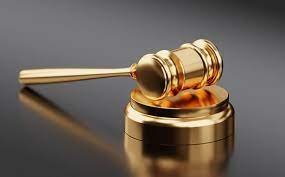In a democracy, it is customary for political parties to criticize each other, but there comes a point where certain limits must be observed, emphasized Mohan Bhagwat, the Chief of the Rashtriya Swayamsewak Sangh (RSS), during his address at the concluding ceremony of the third year of the ‘Sangh Shiksha Warg’ (RSS training camp) in Nagpur. Bhagwat urged political figures to exercise caution and refrain from generating unnecessary controversies.
In any democratic system, political parties engage in a healthy exchange of ideas, competing for the support and mandate of the people. Constructive criticism plays a vital role in holding governments accountable and ensuring transparency and efficiency in governance. However, it is essential to strike a balance and maintain a level of decorum and respect in political discourse.
Mohan Bhagwat’s remarks highlight the need for political leaders to exercise prudence when engaging in political criticism. While it is imperative for them to raise pertinent issues and question the policies and actions of opposing parties, it is equally crucial to avoid personal attacks and the spread of misinformation. By doing so, politicians can elevate the quality of political discourse and contribute to the overall health of democracy.
Political parties must focus on addressing the concerns of the people rather than engaging in mudslinging and sensationalism. The citizens of a democracy deserve well-thought-out policies and solutions that address their needs and aspirations. By diverting attention away from substantive issues through the creation of controversies, politicians only serve to undermine the democratic process and erode public trust.
Furthermore, the role of the media in fostering responsible political criticism cannot be overlooked. Journalists and news organizations have a responsibility to present unbiased and fact-based reporting, avoiding sensationalism and agenda-driven narratives. The media’s role in shaping public opinion is significant, and responsible journalism can contribute to a more informed electorate.
In recent times, there has been a growing concern about the degradation of political discourse in many democracies around the world. The rise of social media platforms has provided a fertile ground for the spread of misinformation, hate speech, and divisive rhetoric. Political leaders and parties must recognize their role in shaping public opinion and take responsibility for maintaining the integrity and civility of political discourse.
The call by Mohan Bhagwat for limits in political criticism serves as a reminder for politicians to prioritize the interests of the nation and its citizens above personal or party gains. It encourages them to engage in a more thoughtful and respectful manner, focusing on the issues that truly matter to the people they represent. By doing so, political leaders can foster a sense of unity and trust among the public and work towards a stronger and more inclusive democracy.
While political criticism is an inherent part of any democratic system, there must be a limit to how far it is taken. Mohan Bhagwat’s message to exercise prudence and avoid unnecessary controversies serves as a timely reminder for political leaders to prioritize the well-being of the nation and its citizens. By engaging in constructive and respectful political discourse, politicians can contribute to the strengthening of democracy and the betterment of society as a whole.


